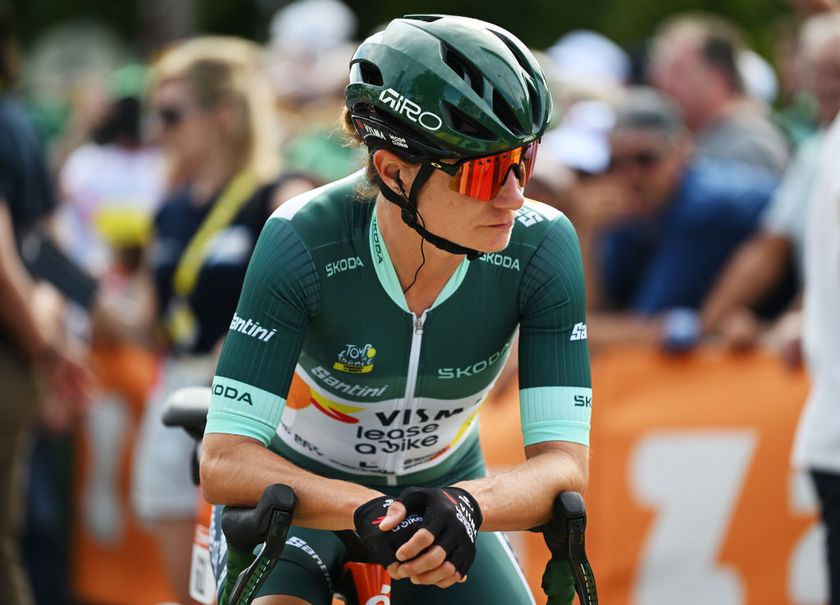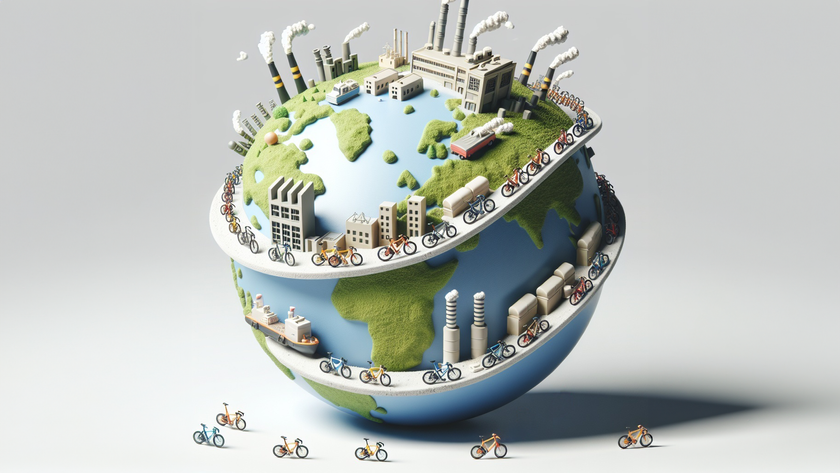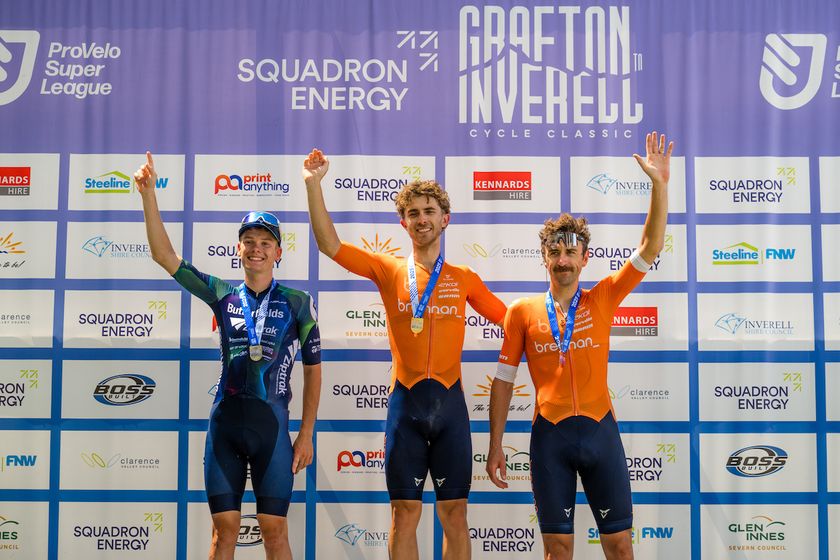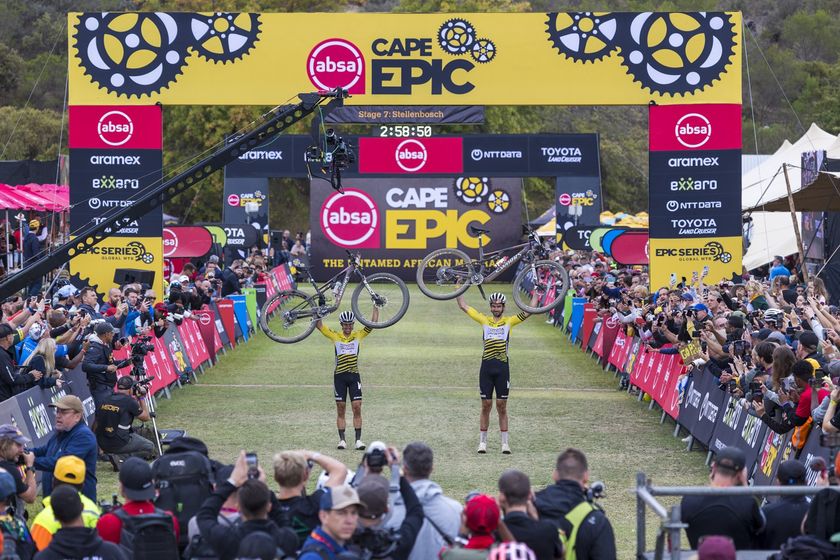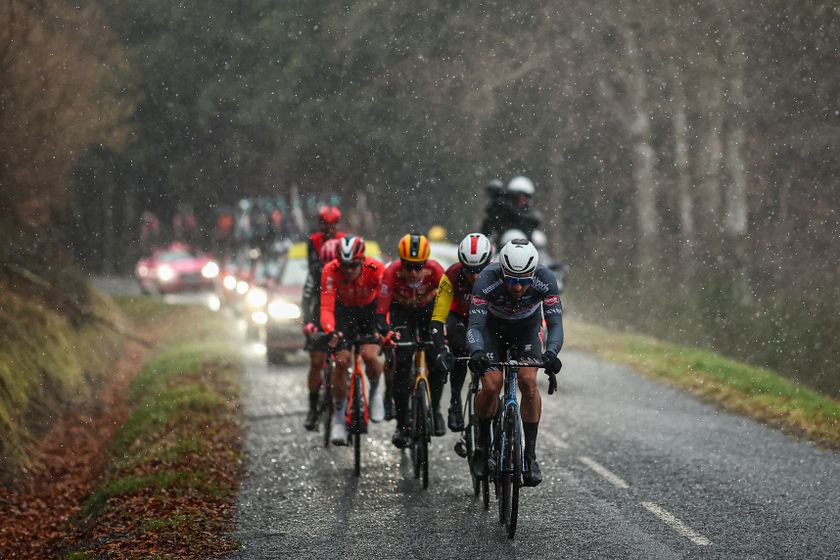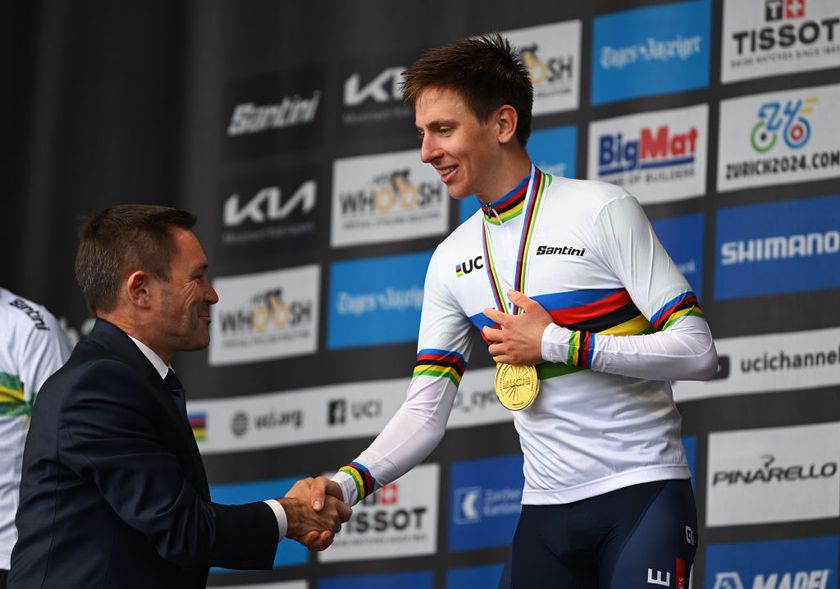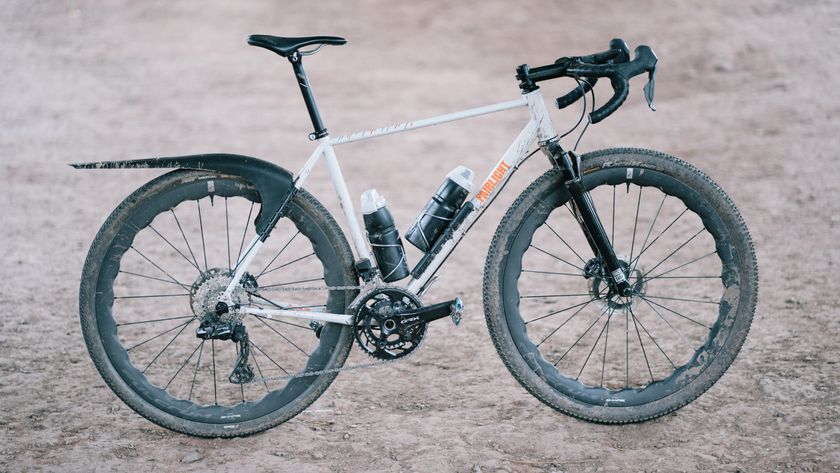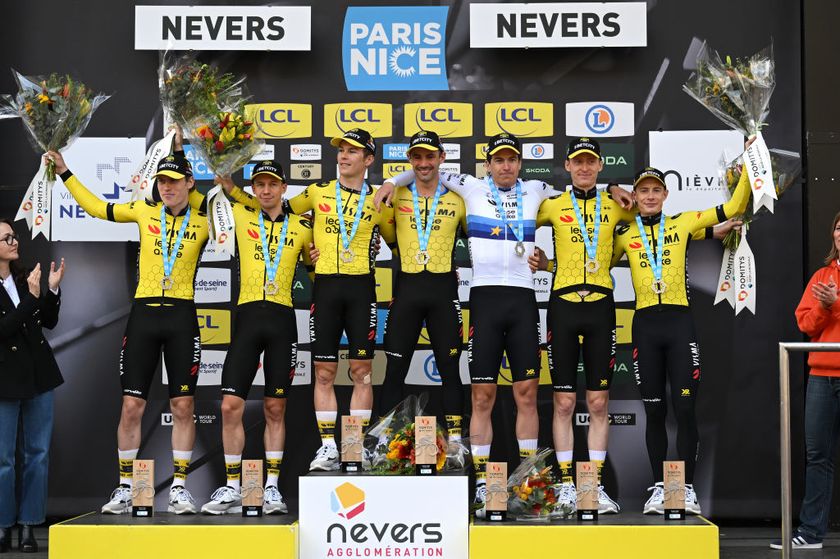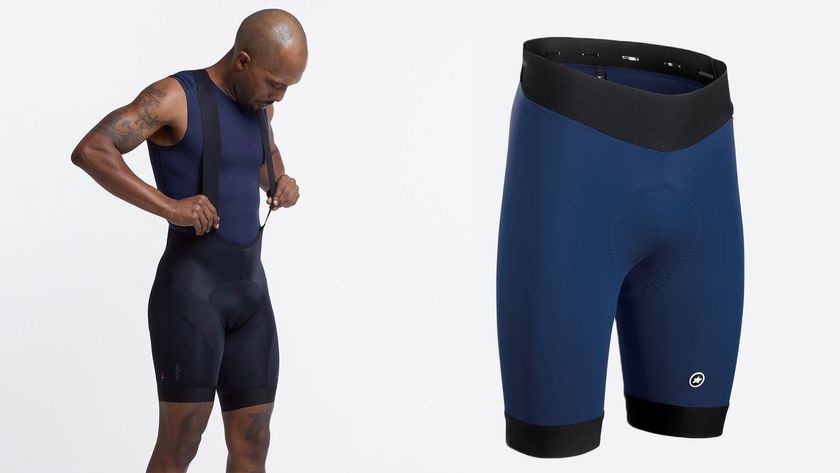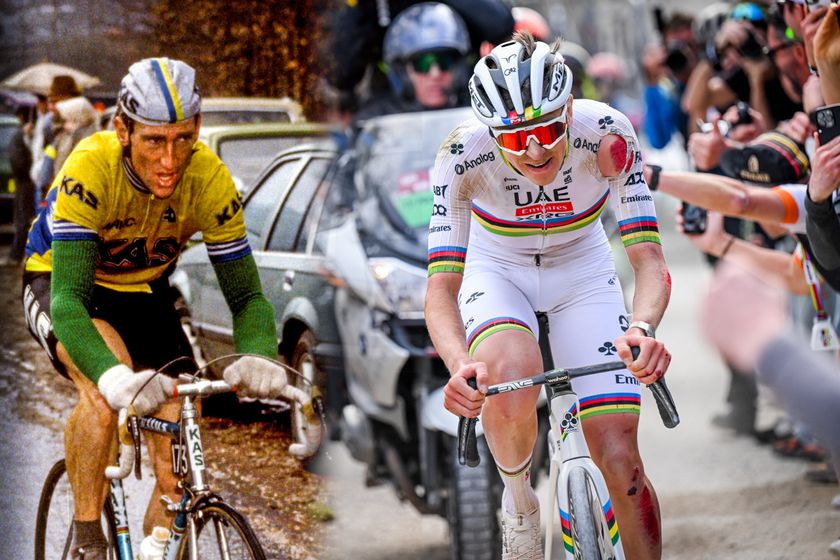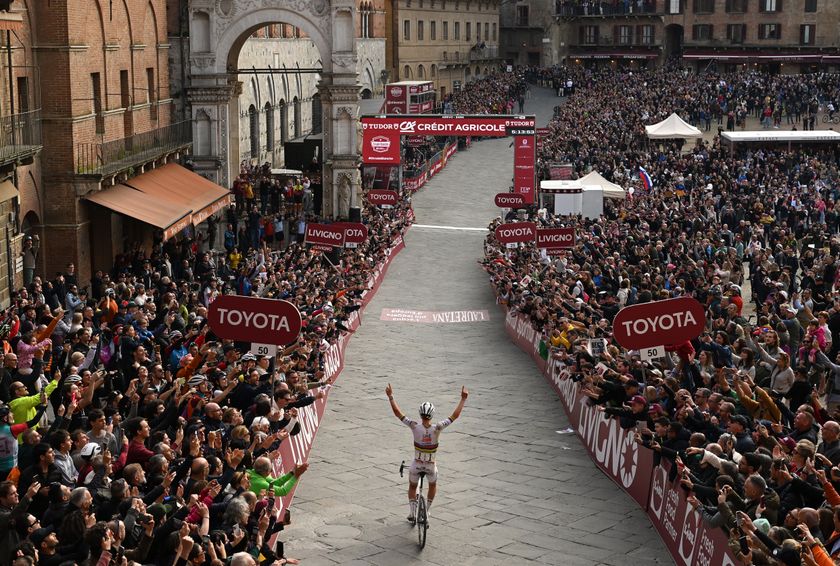A new Russian icon: Ilnur Zakarin's rise to the top
'This year the aim is top five' says Katusha-Alpecin leader





If you see Ilnur Zakarin speaking into his jersey at the Tour de France, it could be a sign that he's about to do something special.
The Russian is, by all accounts, a calm leader who keeps race radio communications to a minimum, but when he's feeling good, he won't miss an opportunity to make a bet with Dimitri Konyshev, Katusha-Alpecin's directeur sportif back in the team car.
"Every race, when he starts to feel good, he says, 'OK we do a bet… If I finish top five you have to do something - If not, I do it'. Sometimes I have to clean his shoes, sometimes he has to clean mine - always stupid things," Konyshev says.
"It's interesting that he starts this and is always thinking about this. He asks me, 'so today, what do we do?' This is the sign. When he's not feeling really good, he keeps quiet, but when he starts to ask this, it's always dangerous for me!"
Zakarin and Konyshev are something of a double act, the four-time 1990's Tour de France stage winner being Zakarin's closest confidant at Katusha.
"He knows how to manage me," Konyshev says with a smile. "I know how to manage him but he knows how to manage me."
Konyshev also doubles up as Zakarin's interpretor when it comes to interviews with international media. And so it is when Cyclingnews meets him at the recent Critérium du Dauphiné, despite Katusha's press officer trumpeting the strides Zakarin has made in learning English.
Get The Leadout Newsletter
The latest race content, interviews, features, reviews and expert buying guides, direct to your inbox!
The Katusha team as a whole has undergone something of a rebranding in recent years, switching from Russian to Swiss registration as part of a transformation from closed-off Russian unit to international outward-facing team. As Zakarin continues his rise in professional cycling, the team see learning English as an important step in allowing the public to engage with and understand him. His Instagram posts - which are appearing with increasing regularity - are now accompanied by an English caption followed by a Russian version.
"With the team it's OK, I can speak the basics, and with the cycling language I know everything, but for the moment, in an interview like this, I'm not really able to express myself fully in English," Zakarin says, via Konyshev.
Konyshev then adds: "I think he is afraid to say something wrong. When you talk with friends it's one language, and with the public it's a different language. But he's good at English, believe me."
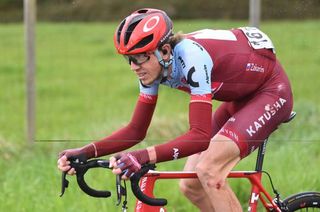
Boxing, singing, and cycling
Zakarin hails from Naberezhnye Chelny in the Republic of Tatarstan in the east of Russia. He says it's a quiet city, most famous for truck manufacturer Kamaz, which employs a large portion of the population and puts on a truck race every year. Last year, after finishing fourth at the Giro and third at the Vuelta, Zakarin was named Tatarstan sportsperson of the year.
His mother works on a farm, while his father, who died last March, was a welder. He has one sibling, a younger brother who also had a short stint as a pro cyclist with RusVelo. Road cycling is far from a popular sport in Russia, and even less so in Tatarstan, so Zakarin had other hobbies before he took up the sport in his early teens.
"I used to do boxing," he says, his spaghetti arms providing some indication as to why that didn't work out. "I was also interested in music. In Tatarstan we have our own language and our own national hymns and songs. I used to sing."
This comes as a shock even to Katusha's press officer, who excitedly tells a shy-looking Zakarin he must sing some songs on the team bus.
"He will do it, don't worry," Konyshev interjects. "At the Tour de France he will sing!"
Zakarin became interested in cycling after a school trip to a cycling club and started riding a battered old machine.
"After a couple of years, I stopped, because of the tubular tyres. Too often you had a flat and you would need to spend a long time fixing it by yourself. I got sick of it and stopped. Then half a year later, when it was inner tubes, I came back."
Growing up, he was just too late to see Konyshev in his pomp, but he did idolize Denis Menchov, winner of the Giro d'Italia and Vuelta a España in the 2000's. He started out doing low-key junior races in Tatarstan and was soon competing on a national scale, travelling thousands of kilometres and sometimes days to do so. His major breakthrough, and the first sign of what he might go on to achieve, came at the 2007 European Championships where, as a 17-year-old, he won gold in the junior time trial. The rider he beat to top spot? Michal Kwiatkowski.
Time trialling, Zakarin says, was his original strength, even if his wiry frame might suggest otherwise. "I started to work specifically for the climbs, and I lost around 10kg," he says, "but even now when I'm good shape I can do a good time trial."
Zakarin's career, however, was almost over before it had begun. In 2009 he tested positive for methandienone, an anabolic steroid, and was banned for two years. Though not unwilling to speak about it, he considers it a matter firmly in the past, his time having been served. He insists he naively followed advice from an acquaintance and had never intended to dope.
Zakarin came back in 2011, riding for Katusha's development squad and winning a stage of the U23 Giro, and by 2012 he was riding for the WorldTour outfit as a stagiaire. He then turned pro with the nascent RusVelo team - which would itself be struck by a spate of doping cases - and, after two years in which he won the Russian national elite time trial title and the Tour of Azerbaijan, he earned a full-time contract with Katusha from 2015.
At 25, he stormed onto the WorldTour scene with overall victory at the Tour de Romandie and a stage at the Giro d'Italia. Naturally, given his past, some eyebrows were raised. Since then he has continued to make up for lost time. He was fifth overall at the 2016 Giro before he dramatically crashed out on the descent of the Colle dell'Agnello, but bounced back to take a stage win at the Tour de France, though the Russian organized doping scandal ended up preventing him from taking part in the Rio Olympics.
2017 was his breakthrough as a Grand Tour general classification rider - finishing fifth at the Giro and third at the Vuelta - and now he's here, targeting the Tour de France yellow jersey for the first time in his career. Despite the fact he'll turn 29 in a couple of months, there's a sense that - due to the two years lost to the ban, perhaps - Zakarin still has plenty of room for improvement.
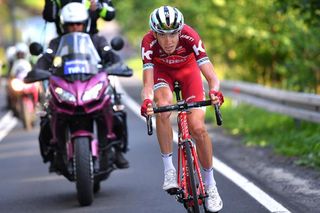
Now or never
Since turning pro, Zakarin has called Cyprus home, allowing him better quality training roads and easier access to races in Europe. The heavy Russian influence - in his city of Limassol more than 10 per cent of the population is Russian-speaking - means he feels perfectly at home. He lives with his wife Viktoria, a dietician who carefully plans his meals, and a daughter who has just turned two.
His faith is a major part of his life. Islam being one of major religions in Tatarstan, Zakarin has recently been taking steps to become a practicing Muslim.
"Three months ago I set it as a big objective, to read and learn about how to perform Namaz, a style of praying," he says.
Another of his hobbies is reading.
"I've read six books this year, mostly about business. The last one was about the brain, and how to use it - if you think in the right way you are on the right way," he says.
"I really like to read about business because for me business and sport are more or less the same mentality. Businessmen really put a lot of time in their lives into their business, in order to get results."
Sitting opposite Zakarin, you can't help be drawn to the tattoo blaring out of his right arm. The words 'Now or never' are written in in black italics running the length of the forearm. Hopes that it might shine more of a light on his soul, however, prove misguided.
"It doesn't mean anything," he says. "I got it about five years ago. I was young and stupid. All young people around that time do stupid things. I was just following the trend - I just felt like doing it and I did it. There's no meaning behind it, no philosophy."
We speak to Pavel Kochetkov, Zakarin's habitual roommate, who says Zakarin is someone who keeps stress and fuss to a minimum, an unassuming figure who largely keeps himself to himself - or his books.
Zakarin says that's fair, and explains that there are shades of his old idol Menchov in his personality.
"Menchov is an easy-going guy, a smart guy. I like how he is as a rider but I also like how he is as a man. I have more or less followed his style. On the bike I am more attacking maybe, but I think we are the same kind of person. Menchov never had a problem with anyone, and no one had a problem with him."
A Russian icon
Menchov, Zakarin, and Konyshev make up half of the total number of Russians to have won a stage at the Tour de France. No Russian has won the overall - Menchov, who won the Giro d'Italia and Vuelta a España, is the only one to have finished on the podium.
"Cycling in Russia for the moment is not in a good condition," Konyshev says, despite the existence of the so-called 'Russian Global Cycling Project', which comprises the Katusha-Alpecin team and its development squad, along with the RusVelo set-up.
"To train in Russia it's really complicated, because of the roads. Can you imagine people training on the highway in Europe? It's more or less the same. Since I stopped racing, there are 300 per cent more cars on the road, but the roads are still the same. In Italy they probably have the same number of kilometres of roads as Russia, because in Russia the roads are from one big city to another, and that's it.
"It's dangerous. I wouldn't send my son out on the road. If you go for two hours you come back completely black because of the soot, and the motorists don't give a fuck about you, if you exist or not. That's why the track is more famous. To make it, Russian road riders need to go to Europe when they're really young."
Asked if Zakarin can be a symbol of road cycling in Russia, Konyshev says: "I hope so. We need somebody."
Zakarin already has a distinctive style - those long arms stretching for the hoods as his unzipped jersey flaps in the wind - but winning the Tour de France would certainly help in that respect. The Katusha management clearly feel that, with his all-round ability, growing experience, and Vuelta podium, he can one day pull it off.
And so does Zakarin himself.
"If you believe in something then it can happen," he says. "If you don't believe in it then you can be sure it will never happen."
Going against the message on his right arm, however, he insists that he has time on his side and much still to learn.
"This year the aim is top five," he says, in English this time.
The chips are down. Konyshev will be watching with bated breath, shoe polish at the ready.
Patrick is a freelance sports writer and editor. He’s an NCTJ-accredited journalist with a bachelor’s degree in modern languages (French and Spanish). Patrick worked full-time at Cyclingnews for eight years between 2015 and 2023, latterly as Deputy Editor.
